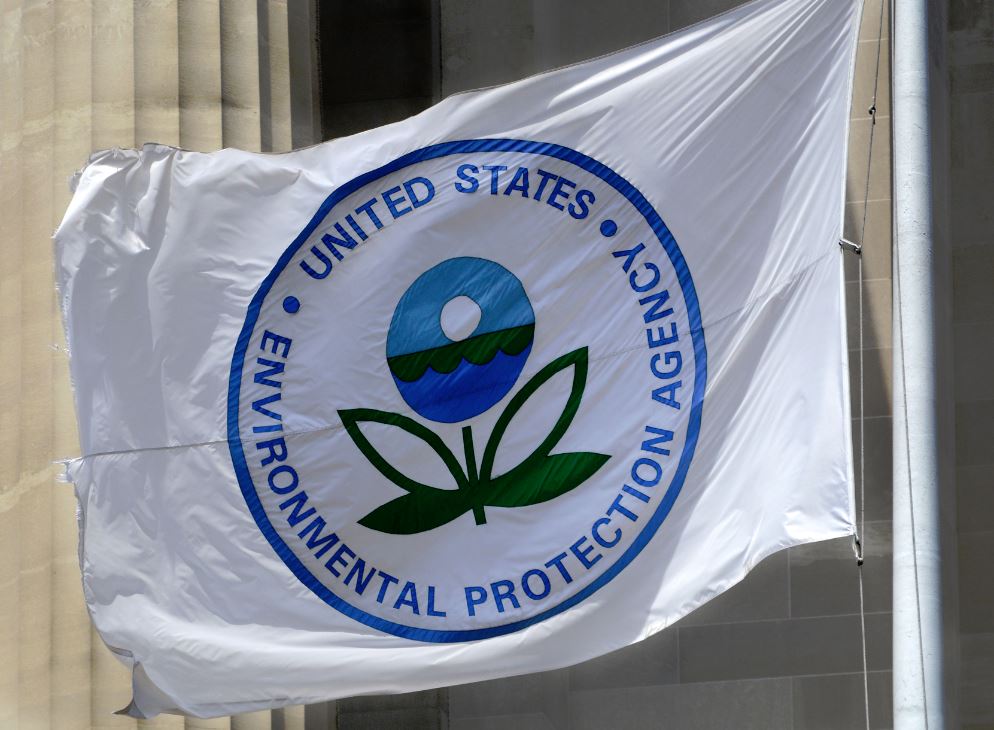Acting Environmental Protection Agency (EPA) administrator Andrew Wheeler appears to be continuing in the vein of his predecessor Scott Pruitt, after the official largely opted out of appointing scientists to an advisory panel on air pollution. Instead, Wheeler seemingly favored candidates holding viewpoints in line with the Trump administration.
The EPA announced on Wednesday five new appointees to the Clean Air Scientific Advisory Committee (CASAC), the panel that advises on U.S. National Ambient Air Quality Standards (NAAQS). The advisory committee provides advice on air quality criteria, in addition to adding NAAQS or revising pre-existing standards.
Former EPA administrator Scott Pruitt came under fire for his overhauling of EPA advisory committees, with scientists and green groups accusing the official of stacking the panels with industry insiders rather than field experts. And many are watching to see how Wheeler will handle appointments to those committees, with the acting administrator now in a position to shape EPA science policy.
But while Wheeler has largely moved away from Pruitt’s secretive and scandal-ridden image, the official’s appointees indicate his approach is likely to be more of the same when it comes to policy.
Independent academic researchers traditionally make up the bulk of appointees to EPA advisory panels, but only one academic scientist made the cut on Wednesday: pulmonologist Mark Frampton, a professor at the University of Rochester Medical Center.
Frampton has conducted research on air pollution, the core issue on which he will be advising. But some of his peers come with more controversial resumes.
One is Toxicologist Sabine Lange, who works with the Texas Council on Environmental Quality (TCEQ). Lange has historically argued that reducing limitations on ground-level ozone would have no impact on public health. Ground-level ozone, or smog, is linked to asthma aggravation, reduced lung function, and severe respiratory issues.
Lange, however, co-authored an assessment published in an environmental management industry magazine rejecting the connections between ozone pollution and its health impacts in 2015, alongside Michael E. Honeycutt, the director of the Toxicology Division of the TCEQ.
Honeycutt, who for years accused the EPA of overstating the risks posed by toxic chemicals, was tapped in 2017 by President Donald Trump to lead the EPA’s Science Advisory Board despite outcry from Texas environmental advocates.
Also on Wheeler’s list is Steven Packham, a toxicologist at Utah’s Department of Environmental Quality. Packham has previously said there is no direct data linking atmospheric particulate matter (PM) with a diameter of less than 2.5 micrometers (PM2.5, or “fine particulates”) to lung-related health impacts.
Scientists, however, have linked PM2.5 to lung cancer and other deadly health problems.
Packham also wrote to the EPA official accepting recommendation letters for the Science Advisory Board in 2016 to recommend Honeycutt for the Science Advisory Board.
“I urge you to accept the nomination of Michael Honeycutt. He is eminently qualified by virtue of his scientific knowledge and experience as a highly respected researcher, leader, and regulator,” wrote Packham on July 8 of that year. “He also has a talent for resolving issues without contention with compromising adherence to sound scientific principles and methods.”
Additional appointees include Corey Masuca, of the Jefferson County Department of Health in Alabama, and Timothy Lewis, an aquatic ecology expert with the U.S. Army Corps of Engineers. Masuca has historically been among the Birmingham officials tasked with addressing the city’s ongoing ozone pollution issues — Birmingham is typically listed as one of the worst in the nation for air quality.
A pillar of Pruitt’s tenure was the former administrator’s efforts to “streamline and standardize” policy development processes within the EPA. That broader approach has meant sweeping changes and proposals within the agency.
Under Pruitt, for example, the EPA proposed limiting the use of scientific evidence sourced from confidential data, despite push-back from health and environmental advocates. Moreover, EPA science advisory board researchers who have historically received agency grants have been accused of having conflicts of interest. Their replacements, however, have largely consisted of industry insiders and conservative voices.
Little has changed since Wheeler took over in July. On Wednesday, along with the new CASAC appointees, the EPA announced an end to the Particulate Matter Review panel, which provided scientific expertise on air pollution. Instead, CASAC’s seven members alone will evaluate the threats posed by PM to public health.
In a statement Wednesday, the Union of Concerned Scientists (UCS) blasted that move and hit out at the “EPA’s political leadership” including Wheeler.
“They are determined to weaken the safeguards that protect us from hazardous air pollution, regardless of the evidence,” said Gretchen Goldman, research director of the Center for Science and Democracy with UCS. “The consequences are enormous, and this represents a fundamental betrayal of the mission of the agency and the laws the EPA is supposed to enforce.”
This week’s move to streamline the office comes after a series of other recent changes. Last month, the EPA announced that it would downgrade the science adviser’s office, which is meant to advise the EPA administrator on the use of science in environmental policies.
The head of the EPA’s Office of Children’s Health Protection, Ruth Etzel, has also been placed on leave for unknown reasons, another indicator that the agency under Wheeler is increasingly moving away from roles that emphasize the link between health and the environment.
In a letter sent Wednesday, Democrats asked the EPA to explain Etzel’s removal, while noting that her office is key to preventing future tragedies like the ongoing water crisis in Flint, Michigan.


